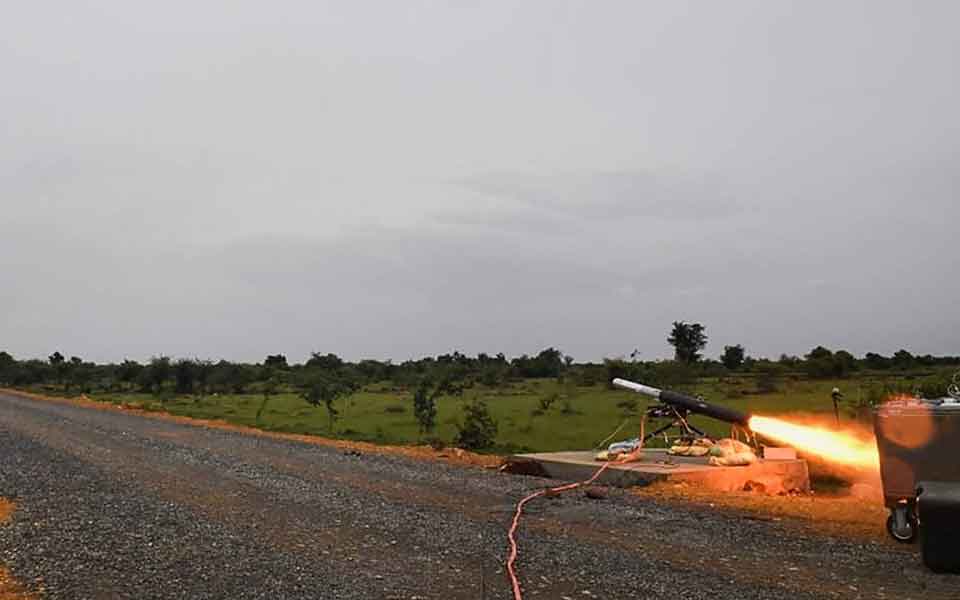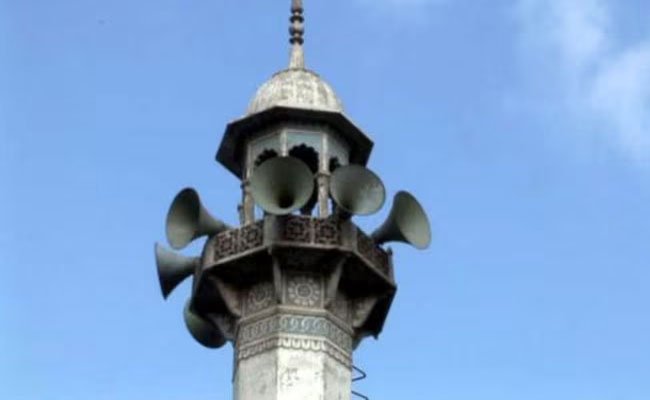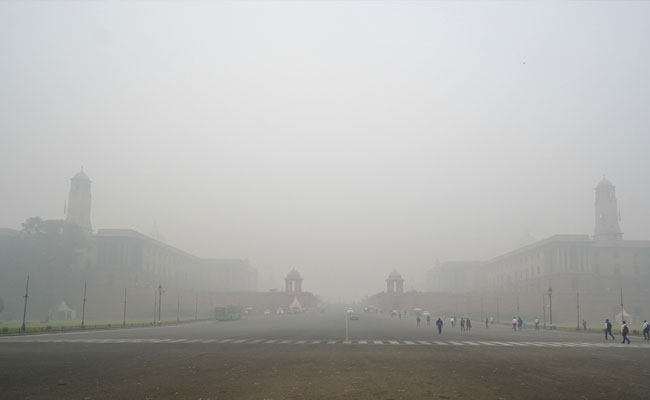New Delhi: A new generation of Akash surface-to-air missile was successfully flight-tested on Wednesday by the DRDO from an integrated test range off the Odisha coast in a boost to India's air defence capabilities.
The defence ministry said the missile was test-fired at around 12:45 PM from a land-based platform and that the "flawless performance" of its weapons system was confirmed by the complete flight data.
"Once deployed, the Akash-NG weapon system will prove to be a force multiplier for the air defence capability of the Indian Air Force," the ministry said in a statement.
It is learnt that the new variant of the Akash missile (Akash-NG) has a slightly better range compared to the original version that can strike targets at a distance of around 25 km.
Defence Minister Rajnath Singh congratulated the DRDO, the Indian Air Force and production agencies Bharat Electronics Limited (BEL) and Bharat Dynamics Limited (BDL) for the successful test-firing of the missile.
Separately, the Defence Research and Development Organisation (DRDO) also successfully flight-tested an indigenously developed low weight man-portable anti-tank guided missile, paving the way for its production for the Army.
The missile is being developed to strengthen the combat capabilities of the Indian Army.
The ministry said the Aakash-NG missile was flight-tested at around 12:45 PM from a land-based platform.
"The Defence Research and Development Organisation (DRDO) successfully flight-tested the new generation Akash Missile from the Integrated Test Range (ITR) off the coast of Odisha on July 21," it said.
"The flight trial was conducted at around 12:45 PM from a land-based platform with all weapon system elements such as multifunction radar, command, control and communication system and launcher participating in the deployment configuration," it added in a statement.
The Akash missile system has been developed by the DRDO's laboratory in Hyderabad in collaboration with other wings of the premier defence research organisation.
In order to capture flight data, ITR deployed a number of monitoring mechanisms such as electro-optical tracking systems, radar and telemetry.
"The flawless performance of the entire weapon system has been confirmed by complete flight data captured by these systems. During the test, the missile demonstrated high manoeuvrability required for neutralising fast and agile aerial threats," the ministry said.
DRDO Chairman G Satheesh Reddy applauded the efforts of the team that was involved in the test-firing of the missile.
In December last year, the government approved the export of Akash missile system and set up a high-level committee to authorise sale of major platforms to various countries.
A committee comprising Defence Minister Singh, External Affairs Minister S Jaishankar and National Security Advisor Ajit Doval was set up to authorise exports of major indigenous platforms.
About the man-portable missile, the defence ministry described the successful trial as a major boost for the government's 'Aatmanirbhar Bharat' (self-reliant India) campaign.
"In a major boost towards 'Aatmamirbhar Bharat' and strengthening of Indian Army, the DRDO successfully flight-tested indigenously developed low weight, fire and forget Man-Portable Antitank Guided Missile (MPATGM) on July 21," the ministry said.
It said the missile was launched from a man-portable launcher integrated with a thermal site and the target was mimicking a tank.
"The missile hit the target in direct attack mode and destroyed it with precision. The test has validated the minimum range successfully. All the mission objectives were met," the ministry said in a statement.
It said that the missile has already been successfully flight-tested for the maximum range.
"The test brings the development of indigenous third-generation man-portable anti-tank guided missile close to completion," the ministry said.
Let the Truth be known. If you read VB and like VB, please be a VB Supporter and Help us deliver the Truth to one and all.
Jamshedpur (PTI): One person was arrested on the charge of raping a 30-year-old woman with speech impairment in Jamshedpur, a police officer said on Tuesday.
The incident occurred in the Azadnagar police station area of the city, and a case in this regard was registered based on the statement of the victim's brother on Monday.
The victim had gone to fetch water from the premises of a company on Monday evening. When she did not return even after a considerable time, family members went out in search of her and caught the accused red-handed, police said.
ALSO READ: BJP accuses Karnataka govt of 'failing' to prevent noise pollution caused by 'azaan'
The accused was a caretaker of the company.
Deputy Superintendent of Police (Patamda) Bachandeo Kujjur said due to scarcity of water in the area, the victim used to fetch water from the premises of the company.





